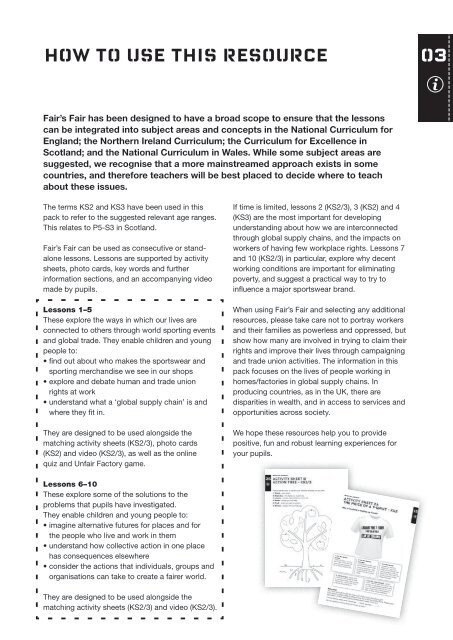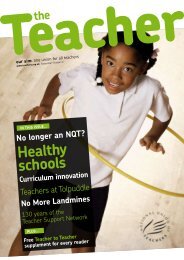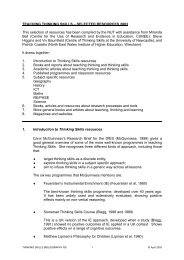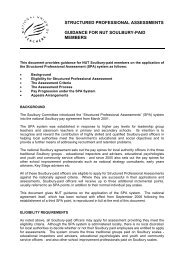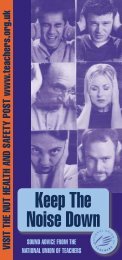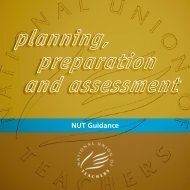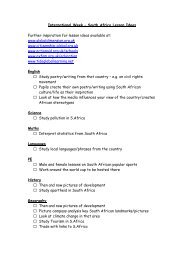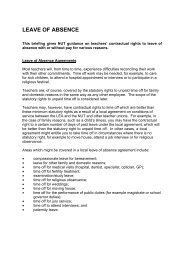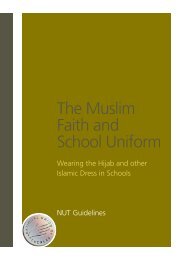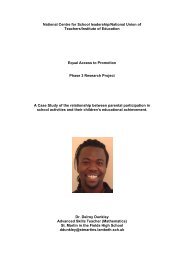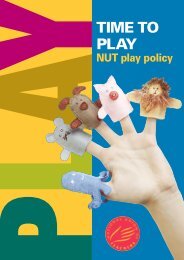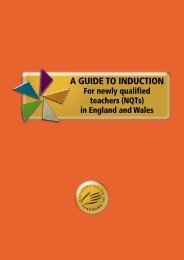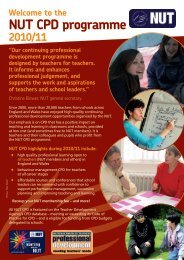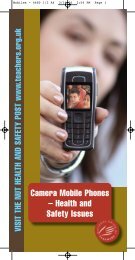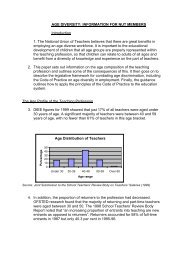Fair's Fair - Playfair 2012
Fair's Fair - Playfair 2012
Fair's Fair - Playfair 2012
You also want an ePaper? Increase the reach of your titles
YUMPU automatically turns print PDFs into web optimized ePapers that Google loves.
How to use this resource 03<br />
<strong>Fair</strong>’s <strong>Fair</strong> has been designed to have a broad scope to ensure that the lessons<br />
can be integrated into subject areas and concepts in the National Curriculum for<br />
England; the Northern Ireland Curriculum; the Curriculum for Excellence in<br />
Scotland; and the National Curriculum in Wales. While some subject areas are<br />
suggested, we recognise that a more mainstreamed approach exists in some<br />
countries, and therefore teachers will be best placed to decide where to teach<br />
about these issues.<br />
The terms KS2 and KS3 have been used in this<br />
pack to refer to the suggested relevant age ranges.<br />
This relates to P5-S3 in Scotland.<br />
<strong>Fair</strong>’s <strong>Fair</strong> can be used as consecutive or standalone<br />
lessons. Lessons are supported by activity<br />
sheets, photo cards, key words and further<br />
information sections, and an accompanying video<br />
made by pupils.<br />
Lessons 1–5<br />
These explore the ways in which our lives are<br />
connected to others through world sporting events<br />
and global trade. They enable children and young<br />
people to:<br />
• find out about who makes the sportswear and<br />
sporting merchandise we see in our shops<br />
• explore and debate human and trade union<br />
rights at work<br />
• understand what a ‘global supply chain’ is and<br />
where they fit in.<br />
They are designed to be used alongside the<br />
matching activity sheets (KS2/3), photo cards<br />
(KS2) and video (KS2/3), as well as the online<br />
quiz and Unfair Factory game.<br />
If time is limited, lessons 2 (KS2/3), 3 (KS2) and 4<br />
(KS3) are the most important for developing<br />
understanding about how we are interconnected<br />
through global supply chains, and the impacts on<br />
workers of having few workplace rights. Lessons 7<br />
and 10 (KS2/3) in particular, explore why decent<br />
working conditions are important for eliminating<br />
poverty, and suggest a practical way to try to<br />
influence a major sportswear brand.<br />
When using <strong>Fair</strong>’s <strong>Fair</strong> and selecting any additional<br />
resources, please take care not to portray workers<br />
and their families as powerless and oppressed, but<br />
show how many are involved in trying to claim their<br />
rights and improve their lives through campaigning<br />
and trade union activities. The information in this<br />
pack focuses on the lives of people working in<br />
homes/factories in global supply chains. In<br />
producing countries, as in the UK, there are<br />
disparities in wealth, and in access to services and<br />
opportunities across society.<br />
We hope these resources help you to provide<br />
positive, fun and robust learning experiences for<br />
your pupils.<br />
Lessons 6–10<br />
These explore some of the solutions to the<br />
problems that pupils have investigated.<br />
They enable children and young people to:<br />
• imagine alternative futures for places and for<br />
the people who live and work in them<br />
• understand how collective action in one place<br />
has consequences elsewhere<br />
• consider the actions that individuals, groups and<br />
organisations can take to create a fairer world.<br />
They are designed to be used alongside the<br />
matching activity sheets (KS2/3) and video (KS2/3).


